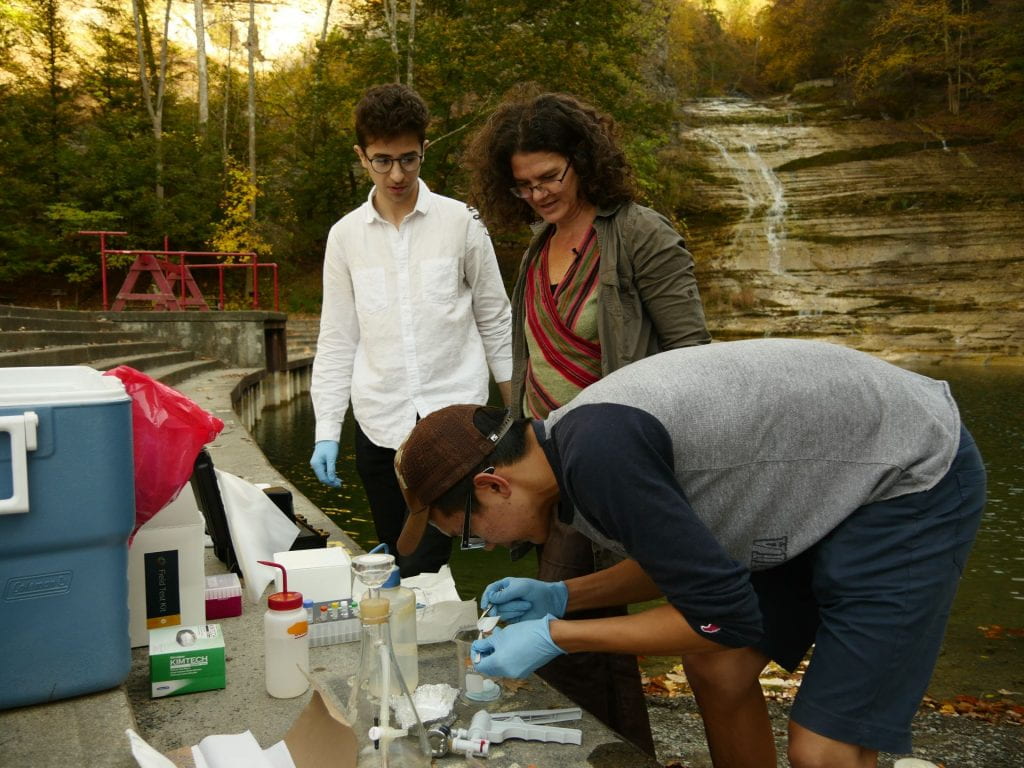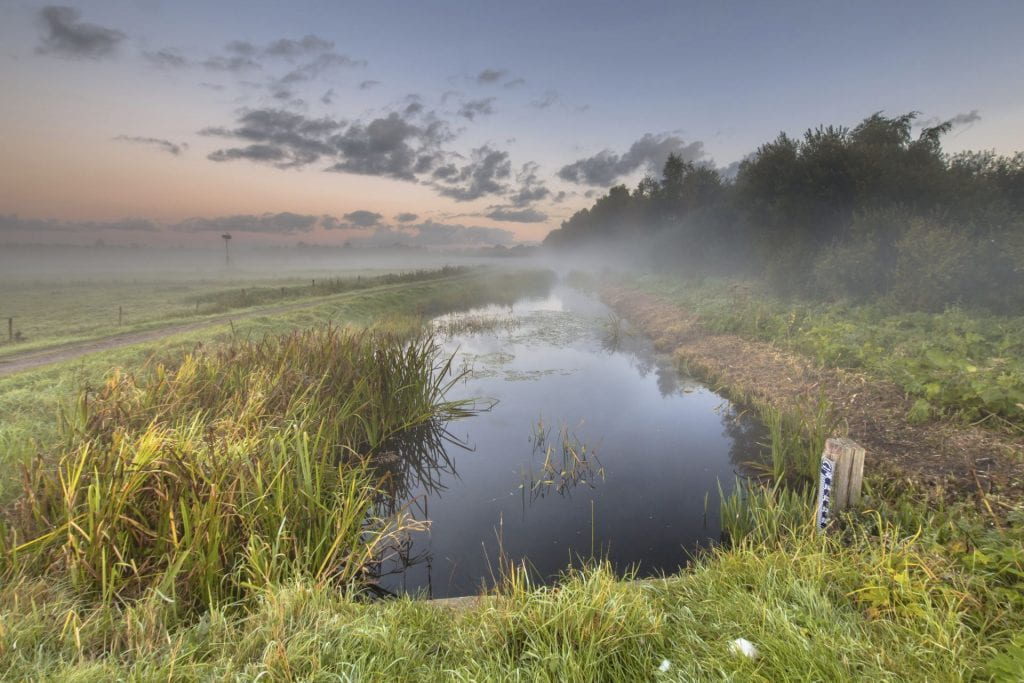Increasingly complex and coupled scientific and social issues call for creative and well trained environmental engineers. The world needs people who have a sense of purpose and a first-class engineering education, who are prepared to tackle modern environmental problems and sustainability issues. Whether assessing the threat of pollutants to an ecosystem, or the treatment needed to provide safe water supplies, environmental engineers play a crucial role. We will provide you with an education that will allow you to be a voice of reason and science, so you can take a leading role in the resolution of current and emerging environmental concerns.
 Environmental engineers seek ways to mitigate human impacts on the environment, generate energy from renewable resources, and protect public health. They analyze the transport, reactions, and effects of land, water, and air-pollutants, design pollution and hazardous waste-control facilities, and oversee the construction and operation of such facilities. They play important roles in city planning, developing water-resource systems, and designing and operating other systems fundamental to preserving our quality of life and the quality of the environment. They
are also involved in the development and management of renewable energy sources. Environmental engineers design systems that can turn waste into electricity and other fuels. Environmental engineers design solutions to problems with long-term sustainability and global impacts in mind.
Environmental engineers seek ways to mitigate human impacts on the environment, generate energy from renewable resources, and protect public health. They analyze the transport, reactions, and effects of land, water, and air-pollutants, design pollution and hazardous waste-control facilities, and oversee the construction and operation of such facilities. They play important roles in city planning, developing water-resource systems, and designing and operating other systems fundamental to preserving our quality of life and the quality of the environment. They
are also involved in the development and management of renewable energy sources. Environmental engineers design systems that can turn waste into electricity and other fuels. Environmental engineers design solutions to problems with long-term sustainability and global impacts in mind.
At Cornell, Environmental Engineering Majors pursue these challenges in a joint program between the Department of Biological and Environmental Engineering and the School of Civil and Environmental Engineering.
FOR MORE INFORMATION CONTACT
Brenda Marchewka
Student Services Coordinator
College of Agriculture and Life Sciences
Department of Biological and Environmental Engineering
bls19@cornell.edu
Laura Ricciuti
Undergraduate Coordinator
College of Engineering
School of Civil and Environmental Engineering
lr482@cornell.edu
Affiliation with EnvE
Students enter the environmental engineering program via one of two pathways: they may enroll with the College of Engineering (CoE) and affiliate with the School of Civil and Environmental Engineering (CEE) or the Biological and Environmental Engineering Department (BEE) as EnvE majors before the end of the their sophomore year; or they may enroll with the College of Agriculture and Life Sciences (CALS) directly to the EnvE major in BEE as freshman. The graduation requirements are the same for all students regardless of the college through which they enter the program.
Transfer students may apply to the EnvE major through either college. The academic expectations and award of transfer credit in these ABET-Accredited engineering programs follow the guidelines set forth by the Engineering College, and prospective applicants should review the Engineering transfer web site for detailed information.
Career Paths
Environmental Engineers may work as researchers, designers, planners, operators of pollution control plants and water supply systems, educators, consultants to private and public businesses, government regulatory agency officials, or program managers in profession and technical engineering societies.
Environmental Engineers design systems to provide energy from renewable and sustainable energy sources, and prevent, reduce, or repair environmental damage caused by human activities. They work to contain, reduce, or prevent hazardous waste, air pollution, or contaminated streams and groundwater. They may also design water treatment plants to deliver safe drinking water to municipal residents or design pollution control systems for industries and cities. They help in the reconstruction of stream channels, and wetlands and estuaries to preserve the environment and to maintain habitat for fish and wildlife. As our societies develop a sustainability focus, environmental engineers should be ready to focus and lead those efforts.
Getting a Ph.D., M.S. or M.Eng. degree
Many graduates with an Environmental Engineering degree continue their education at the finest graduate schools around the world. They pursue Master of Engineering (M. Eng.), Master of Science (M.S.), or Doctoral (Ph.D.) programs in various related engineering disciplines, or they sometimes complement their engineering degrees with Master of Engineering Management, a Master of Business Administration (MBA) or Doctor of Law (LLD) degree. Because of the requirements for coursework in biology and chemistry, the undergraduate major in Environmental Engineering is also an excellent choice for students interested in a broad range of environmental issues or in medicine.


